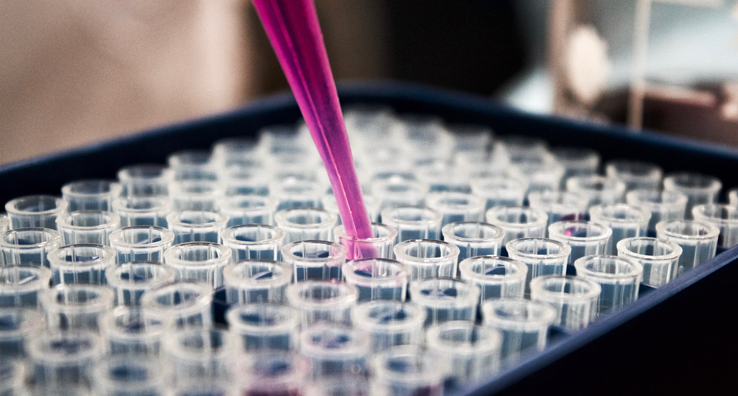PEGylated drug preclinical / clinical bioanalytical studies NMR or LC-MSMS methods for biologics or small molecules
PEGylated drug preclinical or clinical bioanalysis requires robust and innovative methods. Covalent attachment of one or more poly(ethylene glycol) (PEG) chains to a therapeutic drug, also known as PEGylation, has been found to be effective in improving a drug’s pharmacokinetic (PK) profile with potentially an extended half-life of the drug in the body.
Conventional bioanalytical techniques can be challenged during PEGylated drug studies including PEG clearance studies, due to increases in the molecular size of the drug and complexity following PEGylation, and currently there is no general consensus on the most appropriate analytical approach for PK studies of PEGylated drugs. Additionally, the slow clearance of large PEGylated molecules from the body has raised concerns about potential PEG accumulation in tissues following chronic administration.
Our Good Clinical Practice (GCP) or Good Laboratory Practice (GLP) compliant laboratories develop and validate innovative bioanalytical approaches for PEGylated species, such as the use of nuclear magnetic resonance spectroscopy (NMR), providing robust bioanalytical methods to quantify PEGylated compounds across a diverse set of biological matrices and species. Our scientists are adept at developing and validating bioanalytical methods which are suitable for supporting both preclinical and clinical bioanalytical studies whilst meeting the requirements of Bioanalytical Method Validation guidelines.
PEGylated Small Molecules:
- Liquid chromatography-atmospheric pressure ionization/tandem mass spectrometry (LC-API/MS/MS) detection of PEGylated small molecules
- Quantification of PEGylated drugs in biological matrices by Nuclear Magnetic Resonance Spectroscopy (NMR)
PEGylated Biologics:
- Anti-PEG antibodies may impact the efficacy of therapeutic PEGylated drugs. Anti-PEG antibodies can be measured in biological samples to screen subjects with pre-existing antibodies or to monitor the production of anti-PEG antibodies following administration of the PEGylated therapeutic drug
- Pharmacokinetic (PK) assays for PEGylated proteins to determine the concentration of the PEGylated drug product by using a bridging / sandwich ELISA assay platform.
- Quantification of PEGylated proteins in biological matrices by nuclear magnetic resonance spectroscopy
Total Quality Assured
Recognizing the critical role bioanalysis plays in your drug development, our GLP/ GCP compliant laboratories and Total Quality Assurance expertise is focused on delivering accurate and reliable data that is subject to rigorous scientific and regulatory review, ensuring the success of your discovery, preclinical and clinical programs.

Pharmaceutical News & Events
- PRESS RELEASE: Lab expansion to enhance capabilities in inhaled biologics drug development
- PRESS RELEASE: Intertek partners with CrystecPharma to advance formulation science and accelerate development for dry powder inhalers
- NEW! Blog: Optimising Quality in Pharma Supply Chains
- Determination of Particles in Pharmaceuticals - Article
- Discover our Audit Live Tool for direct access to our scheduled audits
- Extractables/Leachables Lab Tour - Request access
- Medical Device Extractables & Leachables Studies
- Glycosylation Analytical Approaches for Antibody Therapeutics
- Rapid Determination of Low/Trace Level Benzene in Pharmaceutical Excipients and Finished Products
Discover our services
- In vitro Toxicology Screening Services to Help Minimise Liabilities and Inform Drug Development Strategies
Learn more - Drug Tolerance Assessment and Improvement in Cell Based NAb Assays Using Response Data Modeling
Learn more - Pharmaceutical Services - Resources and Insights
